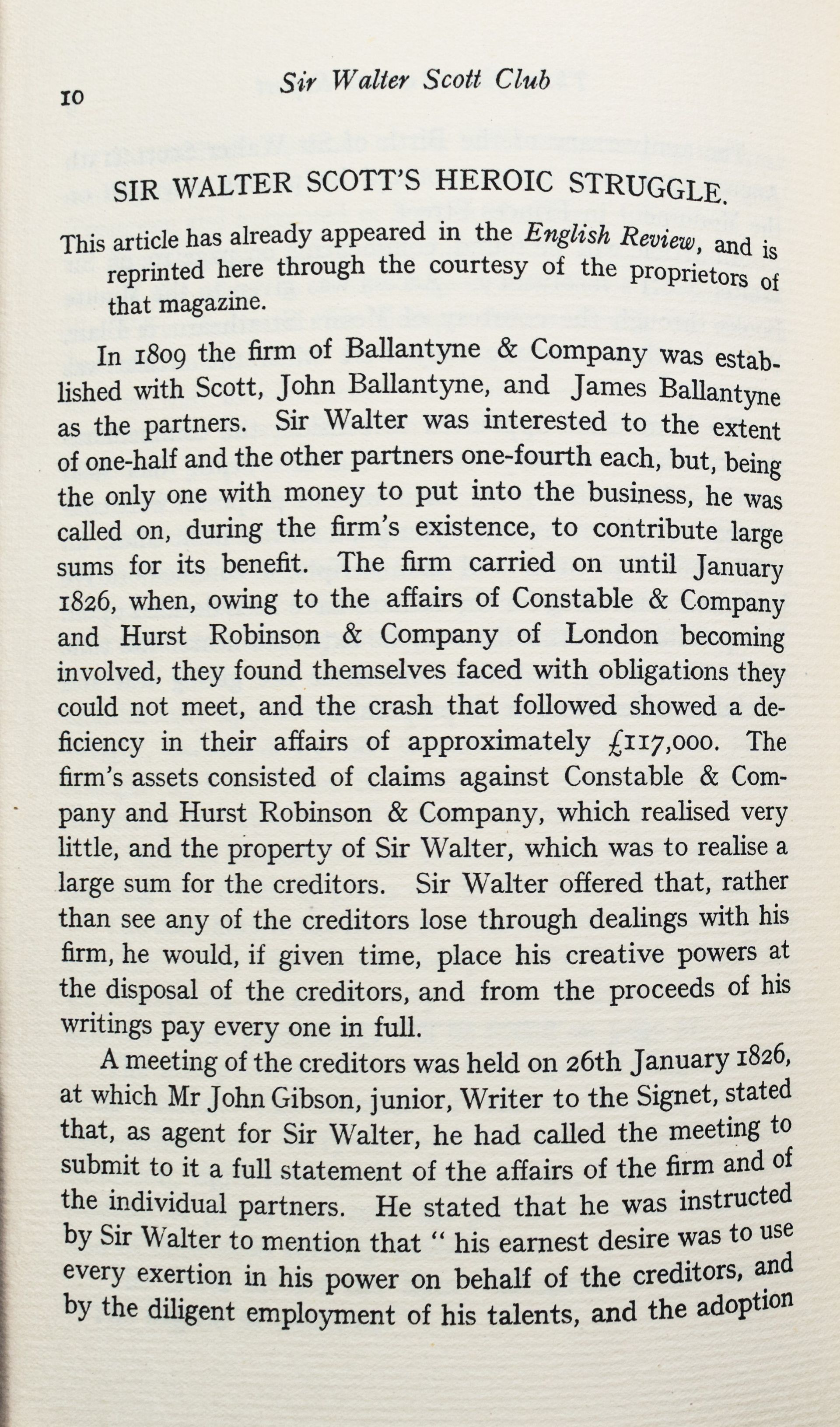Walter Scott's Heroic Struggle (with Insolvency)
Article from 31st Annual Report
Summary of the Article:
In 1809, Walter Scott partnered with John and James Ballantyne to establish the firm of Ballantyne & Company, with Sir Walter contributing most of the capital. However, by January 1826, financial difficulties arose due to the involvement of Constable & Company and Hurst Robinson & Company, leading to a deficiency of £117,000. Despite the firm’s failure, Scott stepped up to ensure that creditors would be repaid from the proceeds of his writings, offering to dedicate his creative work to this purpose.
A trust was set up to manage the debt repayment, with Scott's literary works being sold to raise funds. Sir Walter also took personal measures, including selling his house and securing life insurance, to ensure full repayment. He was involved in writing and publishing numerous novels during this period, including The Life of Napoleon and Woodstock, while also navigating ownership disputes over his works. Despite these challenges, Scott’s perseverance and continued literary output helped to pay off the debt over time.
In the following years, Scott’s health declined, but he continued to write, culminating in the sale of his Waverley Novels and other works to raise funds. By 1832, all debts were cleared. Scott passed away later that year, having successfully honoured his financial obligations. His story remains a powerful example of literary perseverance and personal sacrifice.
Interesting Points:
- Scott's Honourable Effort: Scott’s determination to repay his creditors through his literary works, even while facing his own health challenges and personal financial ruin, is a remarkable testament to his character.
- The Role of the Trust: The creation of a private trust to manage the debts and continue Scott's publishing career was key to his financial recovery and the settlement of the creditors’ claims.
- The Financial Struggles of a Literary Icon: It’s fascinating to see how Scott’s literary output was intricately tied to his personal financial recovery, as his books were the primary means by which he repaid his debts.
- Legacy and Perseverance: Despite his declining health, Scott managed to continue writing, and his legacy lives on through his works, illustrating the enduring power of literature even in the face of personal adversity.
Download the [transcript] or read the [bulletin]

Download the [transcript] or read the [bulletin]


